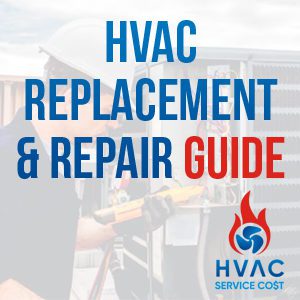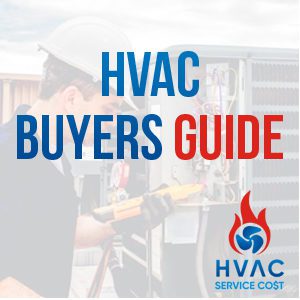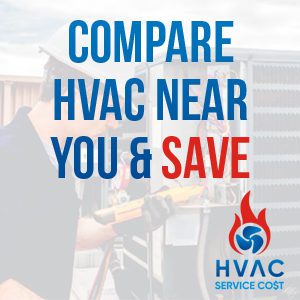
The Dangers of Neglecting HVAC System Maintenance
The comfort and safety of our indoor environments heavily rely on the silent, unseen workings of HVAC systems. These complex networks of heating, ventilation, and air conditioning units work tirelessly to maintain our spaces at just the right temperature, filtering and circulating air to keep us comfortable and healthy. Yet, the importance of regular HVAC maintenance and the urgency of timely repairs often go unrecognized until significant issues arise.
Neglecting these critical tasks can lead to a host of problems, from decreased air quality and efficiency to unexpected system failures and even safety hazards. This blog aims to shed light on the hidden dangers of HVAC neglect and underline the undeniable benefits of maintaining and repairing these essential systems. By understanding the risks and taking proactive steps towards regular upkeep, homeowners and businesses alike can ensure their HVAC units function optimally, providing reliable comfort year-round while avoiding unnecessary costs and hazards.
Understanding HVAC Systems and Their Maintenance Needs
HVAC systems, the backbone of indoor climate control, manage heating, ventilation, and air conditioning to maintain comfort and air quality. Regular maintenance is critical for these systems to operate efficiently. This includes routine tasks like changing air filters every 90 days, annual inspections of electrical components, duct cleaning to prevent blockages, and checking refrigerant levels in air conditioning units.

Signs of Neglect
Recognizing the signs of an unmaintained HVAC system is the first step toward prevention. Warning indicators include unexpected increases in energy bills, uneven heating or cooling, strange noises during operation, and a noticeable decline in air quality. These symptoms suggest that the system is working harder than it should, often due to dirty filters, leaks, or mechanical wear and tear.
The Dangers of Neglecting HVAC Maintenance
Decreased Efficiency and Increased Energy Costs
Without regular maintenance, HVAC systems lose efficiency due to strain on the system’s components. This inefficiency translates directly into higher energy consumption and costs, as the system requires more energy to provide the same level of comfort.
Poor Indoor Air Quality
Neglected HVAC systems become breeding grounds for dust, mold, and other pollutants. These contaminants circulate through indoor spaces, potentially causing respiratory issues, allergies, and other health problems for occupants.
Premature System Failure
Lack of maintenance can lead to early system breakdowns. Components under strain are more likely to fail, often necessitating costly replacements that could have been avoided with regular upkeep.
Safety Risks
Overlooked maintenance poses serious safety hazards. For instance, a cracked heat exchanger in a furnace can leak carbon monoxide, an odorless but deadly gas, into the home. Similarly, faulty electrical connections increase the risk of fire.

The Importance of Timely HVAC Repairs
Avoiding Minor Issues Escalating into Major Problems
Addressing repairs promptly prevents minor issues from escalating. For example, a small refrigerant leak, if ignored, can cause the compressor to fail, significantly increasing repair costs and potentially requiring a complete system replacement.
Cost Savings in the Long Run
Investing in repairs as needs arise can save money over time. Regular maintenance and timely repairs help avoid the more significant expenses associated with emergency services, HVAC replacements, and the inefficiencies of a failing system.
Ensuring System Longevity
Proactive maintenance and repairs extend the lifespan of HVAC systems. Systems that are well-cared-for can outlast neglected ones by several years, maximizing the return on the initial investment.
Maintaining Warranty Coverage
Many manufacturers require proof of regular maintenance to keep warranty coverage valid. Skipping annual check-ups or delaying necessary repairs can void warranty terms, leaving homeowners to cover the full cost of any future repairs.
Best Practices for HVAC Maintenance and Repair
Regular Professional Inspections
Scheduling professional inspections at least once a year ensures that any potential issues are identified and addressed early. These inspections can catch problems invisible to the untrained eye, saving homeowners from future headaches.
Immediate Attention to Repairs
At the first sign of trouble, such as unusual noises or a drop in performance, it’s crucial to seek professional advice. Delaying can turn a simple fix into a complicated, expensive repair.

Choosing Qualified HVAC Service Providers for Maintenance
Selecting the right HVAC service provider is a decision that bears significantly on the longevity, efficiency, and safety of your heating, ventilation, and air conditioning systems. With the market flooded with contractors offering HVAC services, discerning which ones are truly qualified can feel daunting. However, making the right choice is crucial to ensuring your HVAC system receives the best care possible. Here’s a comprehensive guide to help you navigate this process, ensuring that your investment in HVAC maintenance and repair yields optimal results.
- Look for Certification and Licensing: First and foremost, ensure that any HVAC service provider you consider is properly licensed and certified. Licensing requirements vary by state, but they generally indicate that the technician has received a baseline level of training and is authorized to perform HVAC work in your area. Certification, such as that from NATE (North American Technician Excellence), further validates a technician’s knowledge and expertise in the field. These credentials are a testament to the technician’s commitment to their profession and their capability to perform the work needed.
- Evaluate Experience and Specialization: Experience in the HVAC industry is invaluable. Look for companies with a solid track record of delivering quality HVAC services. Providers who have been in business for several years are likely to have encountered and resolved a wide range of HVAC issues, which equips them to handle complex challenges more effectively. Additionally, consider whether the service provider specializes in particular types of HVAC systems or services that match your specific needs, whether it’s residential or commercial systems, installation, maintenance, or repair.
- Check Reviews and References: Customer reviews and references are incredibly telling. They provide insight into the provider’s reliability, quality of work, professionalism, and customer service. Look for reviews on independent platforms or ask the provider directly for references. Pay attention to how the company responds to both positive and negative feedback, as this can indicate their approach to customer service and problem resolution.
- Assess Their Approach to Maintenance and Repairs: A qualified HVAC service provider should offer a comprehensive maintenance plan that includes regular inspections, cleaning, and timely repairs. During initial consultations, gauge their approach to preventive maintenance and how they propose to extend the lifespan of your HVAC system. Their willingness to educate you about your system and its needs is a good indicator of their dedication to ensuring its optimal performance.
- Transparency in Pricing: Transparency in pricing is essential. Reputable HVAC service providers will provide clear, upfront estimates for their services without hidden fees. They should be able to explain the cost breakdown and how they determine their pricing. A trustworthy provider will offer a written quote after assessing your HVAC system in person, rather than giving a vague estimate over the phone.
- Emergency Services: HVAC issues don’t always arise during business hours. It’s important to choose a service provider that offers emergency repair services, ready to address urgent issues promptly to prevent further damage or discomfort. Knowing that you can rely on swift, professional service at any hour provides peace of mind.
- Customer Service and Professionalism: Lastly, the quality of customer service and the provider’s professionalism should be key factors in your decision-making process. From the first contact, assess whether they are courteous, attentive, and willing to answer your questions. A provider’s commitment to excellent customer service is indicative of their overall approach to business and the care they will take in servicing your HVAC system.
The risks associated with neglecting HVAC maintenance and delaying necessary repairs cannot be overstated. From increased energy costs and safety hazards to the potential for premature system failure, the consequences of neglect can impact both the wallet and well-being of homeowners and businesses. By adhering to best practices for maintenance and repair, and partnering with qualified professionals, you can ensure your HVAC system remains a reliable source of comfort and safety for years to come. Don’t let neglect lead to unnecessary discomfort or expense. Take action today to secure the health and efficiency of your HVAC system, safeguarding your investment and your environment.




Leave a Reply